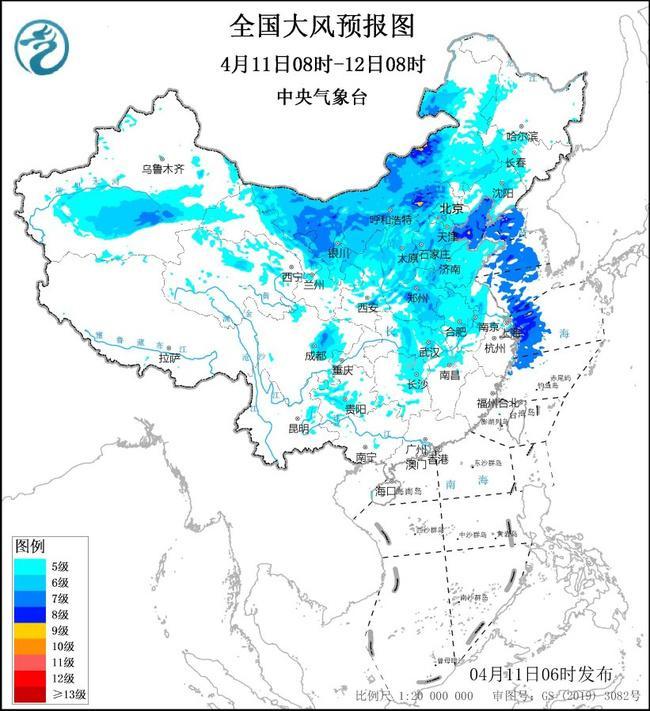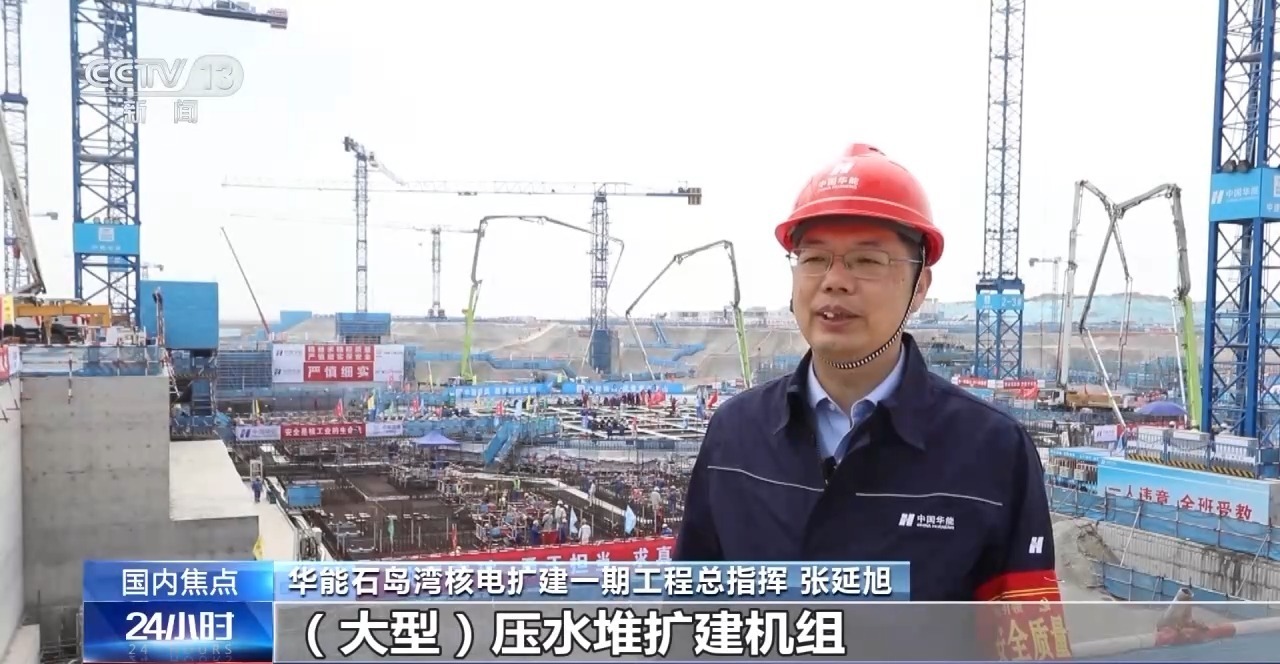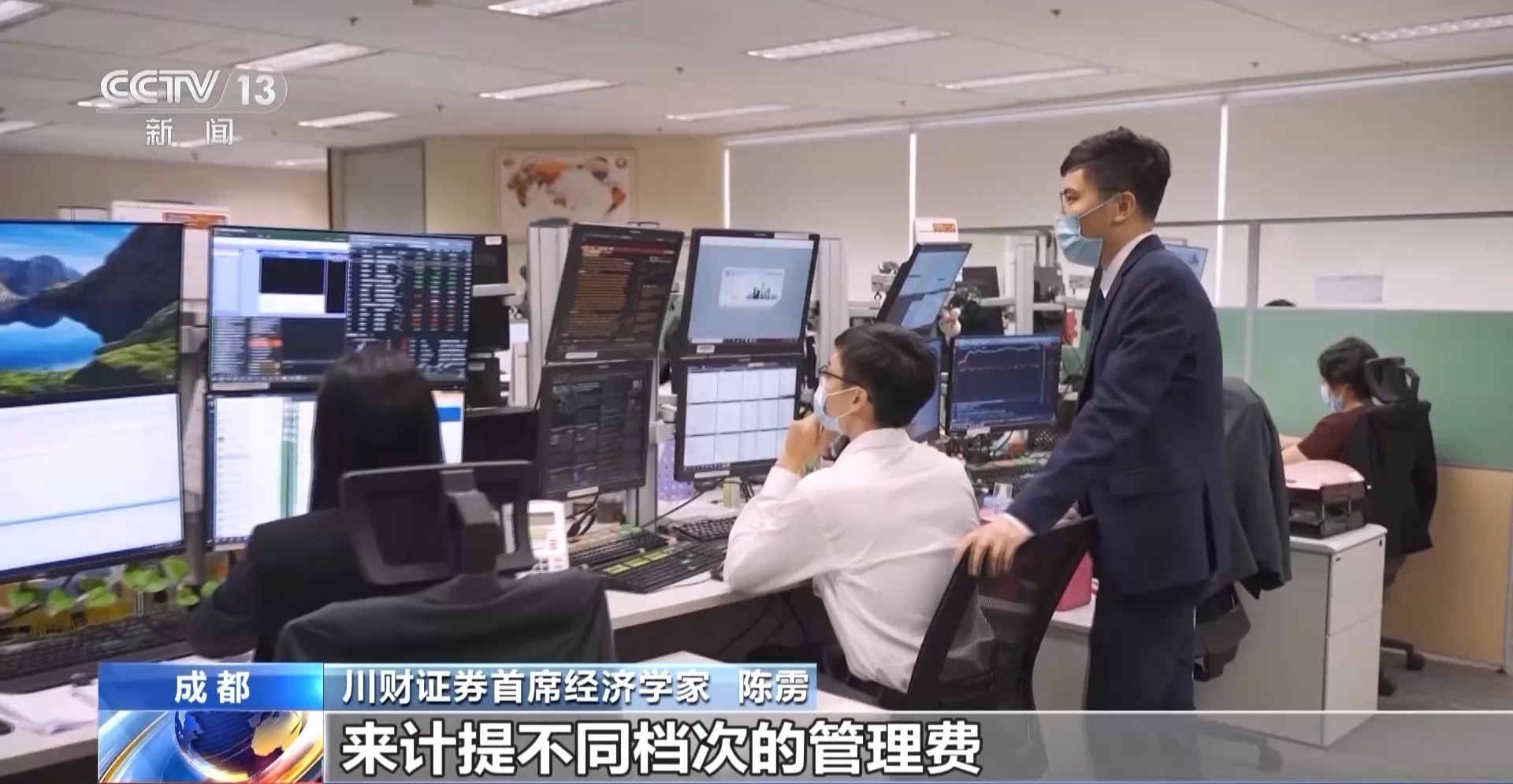Rethinking the consequences of U.S. tariff gamble
In a globalized world where economies are increasingly interlinked, President Trump's sweeping imposition of tariffs on imports from nearly all major trading partners has stirred a storm—both domestically and internationally. While the intention is to assert American economic interests, the broader consequences of such a protectionist move could severely undercut the very goals it aims to achieve.。
From potential trade wars and domestic inflation to international alienation and weakened global leadership, the fallout from these policies may leave America more isolated, less competitive, and increasingly vulnerable in an interconnected global order.。

Tariffs in theory vs. reality。

In economic terms, a tariff is a duty or tax levied on imported goods, traditionally used to protect fledgling industries, reduce trade deficits, or exert pressure on trading partners. Historically, countries like the U.S. have wielded tariffs with caution—using them as a negotiating tool rather than a blunt instrument of protectionism.。

But today's context is different. The U.S. is no longer a manufacturing-heavy economy. Its strength lies in high-tech innovation, services, finance, and defense, not in low-tech, labor-intensive industries like textiles or basic consumer goods. Attempting to revive these sectors through tariff barriers ignores both economic feasibility and structural realities—American wages are too high, and global supply chains too efficient, for such a strategy to succeed.。
A unilateral decision with limited consensus。
Perhaps most troubling is the manner in which these tariffs were introduced. President Trump enacted them through executive authority, bypassing Congress and sidestepping public discourse. Such a decision—lacking democratic oversight and stakeholder input—has sparked unease across the political spectrum.。
Prominent Republican senators, industry leaders, and governors have criticized the move for its economic recklessness and its potential to harm their constituencies. Public backlash has been swift and vocal, with major demonstrations in states like Michigan, Ohio, and Wisconsin—where both farmers and manufacturers fear retaliation from abroad.。
Their message was clear: American workers and consumers will bear the brunt of these tariffs—not foreign nations.。
Who really pays for tariffs?
Despite political rhetoric, tariffs are not paid by foreign exporters. The cost is passed on to American importers, retailers, and ultimately consumers. Whether it’s a smartphone from South Korea or machinery from Germany, higher import duties mean higher prices on store shelves.。
A recent analysis by the U.S. Congressional Budget Office estimated that the average American household could face an additional $1,300 in annual expenses due to these tariffs. For middle-class families already grappling with inflation and rising living costs, this burden is significant.。
Moreover, small businesses—which form the backbone of the U.S. economy—are disproportionately affected. Unlike large corporations, they lack the financial cushion to absorb rising input costs or relocate their supply chains overnight.。
Global reaction: Allies alarmed, rivals energized。
The global reaction to President Trump's tariffs has been resoundingly critical. Traditional U.S. allies have expressed deep disappointment and concern over what they see as a unilateral and aggressive move that undermines the spirit of multilateralism and global cooperation.。
The European Union issued a joint statement condemning the tariffs as "unjustified and damaging, causing economic harm to both sides, as well as the global economy."。
Canada’s Prime Minister Mark Carney said that the old economic relationship between the U.S. and Canada is “over,” vowing that Ottawa will respond “forcefully.”。
The Chinese government strongly condemns and firmly opposes U.S. abuse of tariffs.。
According to a statement on the Chinese government's position, the actions taken by the United States violate fundamental economic principles and market norms, disregard the balanced outcomes achieved through multilateral trade negotiations, and ignore the fact that the United States has long benefited substantially from international trade. Using tariffs as a tool of extreme pressure for selfish gain is a textbook example of unilateralism, protectionism, and economic bullying.。
Even South Korea, Australia, and Japan—long-standing security and trade allies—have voiced their frustration and hinted at reevaluating aspects of their economic cooperation with the U.S.。
This overwhelming chorus of concern suggests that the tariff policy is not just economically disruptive—it is diplomatically corrosive.。
Global retaliation: A domino effect。
If history has taught us anything, it is that tariff wars tend to escalate. In response to U.S. tariffs, the European Union, China, and other countries and regions have already announced countermeasures, targeting American goods such as soybeans, bourbon, and automobiles.。
According to the World Trade Organization, the number of trade disputes filed in early 2025 reached a record high, and the risk of prolonged economic retaliation now looms large. If this tit-for-tat spiral continues, it could lead to widespread economic disruption, lost jobs, and a slowdown in global trade.。
The World Bank warned that U.S. across-the-board tariffs of 10% could reduce already lackluster global economic growth of 2.7% in 2025 by 0.3 percentage point if America's trading partners retaliate with tariffs of their own. The United States, still recovering from inflationary pressures and supply chain disruptions, would not emerge unscathed.。
Undermining U.S. alliances and global influence。
Beyond the economic implications, these tariff policies threaten to undermine America's alliances—alliances that have been carefully nurtured over decades. Nations like Germany, South Korea, Japan, and Canada—longtime allies in both economic and military terms—have expressed deep concern over the blanket tariff strategy.。
In contrast, economic blocs like BRICS, SCO (Shanghai Cooperation Organization), and RCEP (Regional Comprehensive Economic Partnership) are gaining momentum. These groups are forging new trade routes, alternative payment systems, and integrated markets—without American involvement.。
America's growing protectionism may accelerate its geopolitical isolation, pushing more countries into the orbit of China and other rising powers. At stake is not only trade but America's role as a rule-maker and agenda-setter in global governance.。
Rethinking the path forward。
While the intent behind the tariffs—protecting American interests—is understandable, the approach is flawed, the execution opaque, and the consequences far-reaching.。
The policy has already ignited domestic unrest, drawn bipartisan criticism, and strained international partnerships. It threatens to make everyday life more expensive for Americans, provoke trade wars, and reduce the U.S.'s global relevance.。
Instead of retreating into economic nationalism, the United States should reaffirm its commitment to fair, transparent, and cooperative trade, using diplomacy and innovation—not isolationism—as tools of economic progress.。
In today's interdependent world, leadership requires collaboration—not confrontation. America must choose wisely.。
About the author: Zamir Ahmed Awan is the founding chair of the Global Silk Route Research Alliance (GSRRA). He is a sinologist and former diplomat. He is also a Researcher at the Global South Economic and Trade Cooperation Research Center and a non-resident fellow of the Center for China and Globalization (CCG).。
(责任编辑:焦点)
-
 四月的洛阳。空气中充满的都是牡丹的花香。从街头巷尾的花团簇拥。到技艺精深的非遗牡丹瓷。再到全息科技打造的“永不凋谢”的花海。洛阳牡丹已从开始的单一观赏价值。向全产业链构建跨进。在180秒的镜头中。洛阳
...[详细]
四月的洛阳。空气中充满的都是牡丹的花香。从街头巷尾的花团簇拥。到技艺精深的非遗牡丹瓷。再到全息科技打造的“永不凋谢”的花海。洛阳牡丹已从开始的单一观赏价值。向全产业链构建跨进。在180秒的镜头中。洛阳
...[详细]
-
厚植底色行致远 砥砺猛进谱新篇——合肥市万泉河路幼儿园迎候合肥市特一类园评价
 2022年5月25日下午,合肥市万泉河路幼儿园迎候“合肥市特一类幼儿园”创立评价作业。评价组专家合肥市西园新村幼儿园园长宗珣、庐阳区教体局幼教教研员方明惠、合肥市宿州路幼儿园园
...[详细]
2022年5月25日下午,合肥市万泉河路幼儿园迎候“合肥市特一类幼儿园”创立评价作业。评价组专家合肥市西园新村幼儿园园长宗珣、庐阳区教体局幼教教研员方明惠、合肥市宿州路幼儿园园
...[详细]
-
 湖北日报讯记者杨文漪)5月7日晚,“散步我国·发现武汉”中外媒体联合采访采风活动在“两江晴川”游船上拉开帷幕,来自老挝、尼泊尔、越南、印尼、土耳其、泰国等国驻华使节与中外记者代表共聚长江之畔。印度尼西
...[详细]
湖北日报讯记者杨文漪)5月7日晚,“散步我国·发现武汉”中外媒体联合采访采风活动在“两江晴川”游船上拉开帷幕,来自老挝、尼泊尔、越南、印尼、土耳其、泰国等国驻华使节与中外记者代表共聚长江之畔。印度尼西
...[详细]
-
 曩昔一个月,美国挑起新一轮交易战,飙升的关税数字意味着什么?央视新闻《相对论》记者庄胜春考察外贸工厂,寻觅亲历者们的答案。01。广交会前夜。广交会前一晚,王荐在顺德的厂房拼装要展出的样机。他的厂子主营
...[详细]
曩昔一个月,美国挑起新一轮交易战,飙升的关税数字意味着什么?央视新闻《相对论》记者庄胜春考察外贸工厂,寻觅亲历者们的答案。01。广交会前夜。广交会前一晚,王荐在顺德的厂房拼装要展出的样机。他的厂子主营
...[详细]
-
劲风橙色预警:华北黄淮等地部分地区有8至10级阵风 局地可达13级
 央视网音讯:中央气象台4月11日06时持续发布劲风橙色预警,估计,新疆东部和南疆盆地、青海北部、甘肃北部和东部、宁夏、陕西中北部、内蒙古大部及东北地区中南部、华北、黄淮、江淮、江汉、江南北部、四川盆地
...[详细]
央视网音讯:中央气象台4月11日06时持续发布劲风橙色预警,估计,新疆东部和南疆盆地、青海北部、甘肃北部和东部、宁夏、陕西中北部、内蒙古大部及东北地区中南部、华北、黄淮、江淮、江汉、江南北部、四川盆地
...[详细]
-
 广阔顾客在日常日子中经常会收到一些生疏信息,或接听到一些生疏电话,大部分人都会犹疑,该不该点,该不该接,忧虑对方可能是骗子,但其实,万“骗”不离其宗,只需认清骗子的欺诈套路,就
...[详细]
广阔顾客在日常日子中经常会收到一些生疏信息,或接听到一些生疏电话,大部分人都会犹疑,该不该点,该不该接,忧虑对方可能是骗子,但其实,万“骗”不离其宗,只需认清骗子的欺诈套路,就
...[详细]
-
 5月7日,我国先进核电基地——华能石岛湾核电基地扩建一期工程2号机组开工,标志着该项目进入全面建造阶段。华能石岛湾核电基地现在在运一座高温气冷堆演示工程,扩建工程2号机组选用我国具有自主知识产权的三代
...[详细]
5月7日,我国先进核电基地——华能石岛湾核电基地扩建一期工程2号机组开工,标志着该项目进入全面建造阶段。华能石岛湾核电基地现在在运一座高温气冷堆演示工程,扩建工程2号机组选用我国具有自主知识产权的三代
...[详细]
-
 近年来,我国公募基金职业不断强大,上一年9月份以来,权益类基金规划现已从7万亿元增长到现在的8.3万亿元。可是,基金职业也暴露出投资者取得感不强等问题。为推进职业高质量开展,中国证监会昨日7日)揭露印
...[详细]
近年来,我国公募基金职业不断强大,上一年9月份以来,权益类基金规划现已从7万亿元增长到现在的8.3万亿元。可是,基金职业也暴露出投资者取得感不强等问题。为推进职业高质量开展,中国证监会昨日7日)揭露印
...[详细]
-
 新华社北京4月10日电记者张千千、李延霞)记者从工、农、中、建、交、邮储六大国有银行得悉,近来六大行活跃推进股票回购增持借款事务,支撑央国企、民营企业强化市值办理、优化本钱运营等各类需求,助力保护本钱
...[详细]
新华社北京4月10日电记者张千千、李延霞)记者从工、农、中、建、交、邮储六大国有银行得悉,近来六大行活跃推进股票回购增持借款事务,支撑央国企、民营企业强化市值办理、优化本钱运营等各类需求,助力保护本钱
...[详细]
-
 当地时间5月7日,戴维·珀杜发誓就任美国驻华大使。美国总统特朗普到会就职典礼。戴维·珀杜1949年12月出生在美国佐治亚州,是一名共和党人,曾于2015年至2021年担任佐治亚州联邦参议员。当地时间4
...[详细]
当地时间5月7日,戴维·珀杜发誓就任美国驻华大使。美国总统特朗普到会就职典礼。戴维·珀杜1949年12月出生在美国佐治亚州,是一名共和党人,曾于2015年至2021年担任佐治亚州联邦参议员。当地时间4
...[详细]

 加拿大总理强硬发声:我们正对抗不合理的关税,就要给美国造成最大痛苦
加拿大总理强硬发声:我们正对抗不合理的关税,就要给美国造成最大痛苦 全力战枯水保疏通 建立水路交通新形象
全力战枯水保疏通 建立水路交通新形象 长幼杏林分园:我的心情我做主——小班幼小联接活动(八)
长幼杏林分园:我的心情我做主——小班幼小联接活动(八) 全国春播迎顶峰 智能化配备助各地粮食生产
全国春播迎顶峰 智能化配备助各地粮食生产 文明我国行丨西湖龙井中心产区迎来采摘高峰期 来品味春天的一口“鲜”
文明我国行丨西湖龙井中心产区迎来采摘高峰期 来品味春天的一口“鲜”
